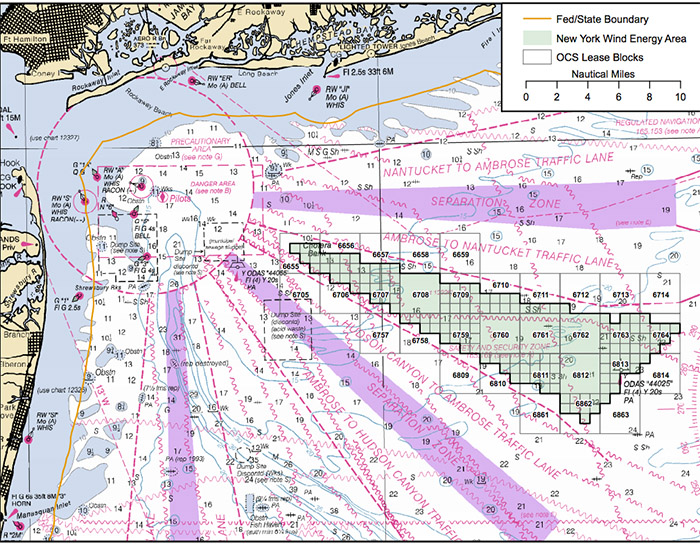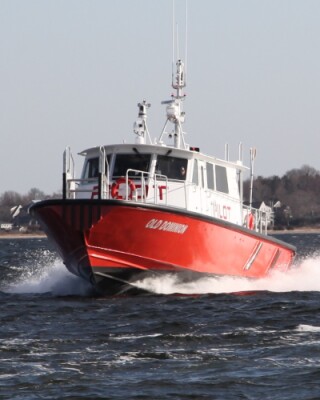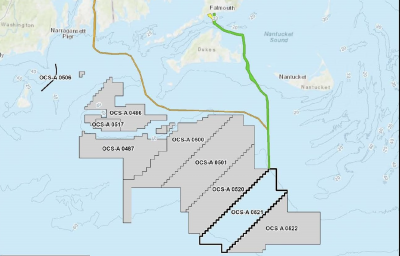Seafood industry groups were dealt a setback Sept. 30 when a federal court judge in Washington, D.C., refused to grant a ruling in their challenge of a federal lease for an 80,000-acre offshore wind energy project near New York.
The Fisheries Survival Fund and its allies sought a summary judgement from U.S. District Court Judge Tanya Chutkan in Washington, D.C., to overturn the federal Bureau of Offshore Energy Management’s grant of a $42.5 million lease to Norway-based Equinor, formerly Statoil, for its Empire Wind project.
Fishermen argued BOEM ignored potential impacts on the environment and fishing. On Sunday the judge ruled that challenge to the initial December 2016 leasing was premature, as the agency has yet to review a construction and operations plan from the company.
But other court precedents have held that offshore leaseholders “gain more rights as development proceeds, and as more time and money are invested in a project,” the Fisheries Survival Fund said in a prepared statement. “That means that the further development proceeds, the more difficult it becomes for plaintiffs to overturn a leasing decision.”
The decision comes as wind energy companies are vying to lock in agreements with state governments in New York and New Jersey – and get priority for ratepayer subsidies that will help develop a U.S. industry.
The judge has found the fishing industry and affected communities; including scallop fishing ports like New Bedford, Mass., have standing to contest the wind farm proposal. The challengers say the “unsolicited bid procedure allowed BOEM to decide, behind closed doors, what area of the ocean was to be leased.”
But in her ruling, the judge found that the “lease sale does not represent the final word on anything, nor does it commit any resources, even putting aside the question of whether it does so irretrievably.”
The judge also ruled the plaintiffs are barred from filing claims under the federal Outer Continental Shelf Lands Act because the law requires a 60-day notice when objectors plan to file an action against BOEM.
“We were not able to provide 60 days’ notice, because BOEM scheduled the lease sale only 45 days after publication of the final sale notice,” the Fisheries Survival Fund said in its statement. “If the court’s position is upheld, BOEM apparently would have the ability to lease any portion of the ocean unchallenged, and would deny any harmed parties their right to challenge a proposed lease sale under the OCSLA.”





